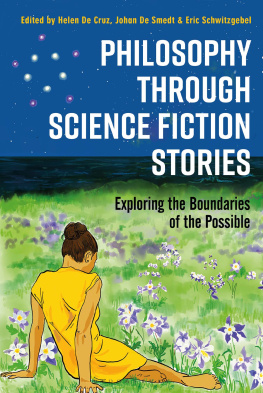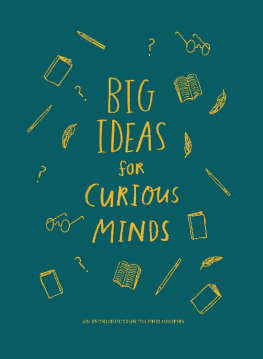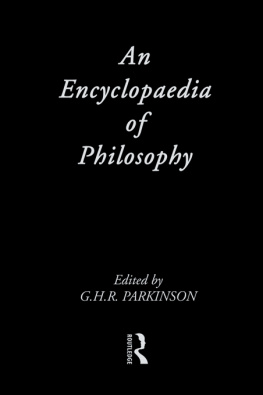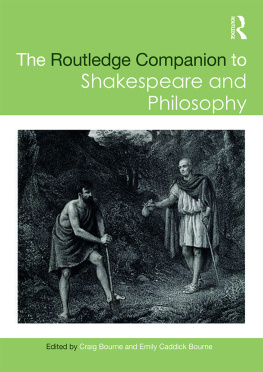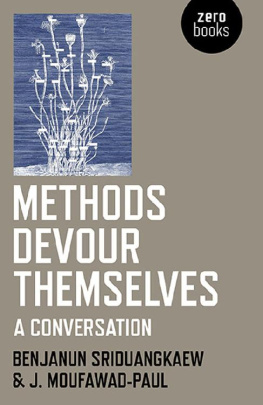
Philosophy through Science Fiction Stories
Also available from Bloomsbury
An Ethical Guidebook to the Zombie Apocalypse, by Bryan Hall
Cosmopolitan Aesthetics, Daniel Herwitz
Everyday Examples, David Cunning
Fiction and Philosophy in the Zhuangzi, Romain Graziani
Problems in Value Theory, edited by Steven B. Cowan
The Philosophy of Science Fiction, James Burton

Contents
The editors wish to thank the following people and organizations for helping this project come to fruition. We would like to thank the British Society of Aesthetics for their small grant which allowed Helen to organize a workshop on philosophical fiction writing (Oxford Brookes University, 2017). This workshop led to the conception of this volume, and brought some of the editors and authors together. We also wish to thank the Berry Fund for Public Philosophy at the American Philosophical Association for a small grant that allowed us to organize a competition for philosophical science fiction stories. The winning entry of this competition, Lisa Schoenbergs Adjoiners, is reprinted with minor revisions in this volume. Many thanks to Yiling Zhou for proofreading and formatting the manuscript. We are also grateful to our editors at Bloomsbury, in particular Colleen Coalter, Becky Holland, and Helen Saunders for suggestions and support throughout the process, and to an anonymous referee for their helpful comments. A final word of gratitude is due to all those science fiction authors, both classic and contemporary, who have informed our thinking about the relationship between philosophy and fiction.
Adjoiners first appeared in Sci Phi Journal in 2017 as The Adjoiners, URL: https://www.sciphijournal.org/index.php/2017/06/30/the-adjoiners-by-lisa-schoenberg/, and is reprinted here with some revisions.
Hell is the Absence of God first appeared in Starlight 3, ed. Patrick Nielsen Hayden (pp. 1547). New York: Tor, 2001
Helen De Cruz, Johan De Smedt, and Eric Schwitzgebel
this dialogue, for example, said Johan, folding his arms, gazing across the table in the hotel bar at the meeting of the American Philosophical Association. It didnt even happen. Fictional philosophical dialogue is out of fashion for excellent reason.
But thats the beauty of it! replied Eric, looking slightly hurt. His imaginary cocktail was bright pink, with three cherries and an umbrella.
No one will believe it. Whats the point? Its a waste of time. If youre doing philosophy, just lay it out straight. Say what you want to say. Dont decorate it with fiction. Johan pointed accusingly at Erics cocktail. I mean, why an umbrella? Its silly froufrou.
Its cute! said Helen, who you didnt picture until just now, but who had been sitting at the imaginary table all along. It enhances the mood. It adds color. Even if strictly speaking it has no nutritional content, its vivid turquoise complements the pink and red of drink and cherry. Fiction dresses an idea, invites you to engage with that idea, makes it attractive in a certain sort of way.
The wrong sort of way! said Johan.
Fiction is the very flesh on the bones, not decoration, said Eric.
Imagine a man who is explicitly sexist, said Helen. He is committed to patriarchy, thinks that women should only have certain roles. They should only be mothers and homemakers. Now give him a story to read. Tell it from a womans point of view. Make it some future dystopia where women are oppressed in a way that even he would say is bad. Get him to sympathize with those fictional women, really feeling their plight. Tell the story vividly, emotionally, with depth and detail over three hundred pages. When he pokes his head back up out of the story, maybe hell see the world a little differently. Maybe hell have a little more sympathy for women in oppressive systems. Maybe hell see similarities between the exaggerated situation in the fiction and the experiences of women in his own society, and maybe hell be a tiny bit more open to change. Hell have shifted a little, philosophically, in his view of the world. Thats the kind of work philosophical fiction can do.
Johan looked around the bar. For a long time, academic , can be emotionally profound. It can fill you with awe just by its very sound, with no rational content at all. And maybe, in the right circumstances, it could color your future perspective. But that wouldnt make Beethoven a philosopher or his symphonies philosophical works.
If the work explores or promotes a worldview, said Eric, I dont see why we shouldnt call it philosophical. He pierced a maraschino cherry with the stem of the umbrella, then lifted it to eye level. Now suppose that the intent of this cocktail, in its pink and turquoise flamboyance, is to celebrate lifes capacity to delight us with sweet, luxurious, unapologetic indulgence. The manager highlights this drink on the cocktail list with that very intent, and knowing that intention, the bartender mixes and presents it. This cocktail, then, is itself an act of philosophy, even if certain dowdy no-funners are unable to appreciate it. With one finger, Eric flicked the cherry off the umbrella, high into the air, aiming to catch it in his mouth on its downward arc. The cherry struck him on the chin, then bounced to the floor. The bartender, who in mixing the cocktail had no such intentions as Eric described, glanced critically in their direction.
Helen stooped to retrieve the cherry, then set it on a napkin in front of her. So, we can drink philosophy as well as read it, Eric? Should we invite the bartender to give a colloquium talk?
Eric lifted his cocktail. That would be awesome! But of course she will need to perform in her accustomed liquid medium.
Argument by cocktail? I wouldnt go as far as that, Helen said, gazing absently at the hotels logo on the crumpled napkin. But maybe a great It showed how they kept those animals for hire, but clearly it was also a social commentary. Its basic content was kind of obvious and simplebut it was political philosophy. And maybe it would reach people better than an essay. I imagine some aristocrat contemplating the painting, pitying the donkeys. Maybe later, as hes rolling along in a lovely carriage, he sees someone selling apples in the bleaching sun and thinks What are we doing? Were treating people as badly as those donkeys! Its not like he couldnt get similar ideas from prose and think the same thing non-metaphorically, but the vividness of the metaphor hooks him in, leads him along, makes the idea salient and emotional and memorable in a way it wouldnt otherwise be.
But, Helen, groaned Johan, now everything will become philosophy. You cant sustain the compromise position you want. Every work of fiction, implicitly or explicitly, critiques or celebrates a worldview. The main characters have ideals and values, they make life choices, and by portraying these sympathetically or unsympathetically, and by showing us how those values and choices play out in the story, the fiction nudges us toward a worldview. But surely, we dont want to say that all fiction is philosophy. And it isnt just fiction. All movies and TV shows, all lyrical songs, and maybe all songs of any sortmaybe even architecture and fashion and product design. If you say that painting is philosophy, lots of things risk becoming philosophy, until you end in the inanity of turquoise-umbrella cocktail philosophy. Erics ability to appreciate the cocktail in phenomenological terms does not turn the bartender into a phenomenologist. Where do you stop?
Next page
